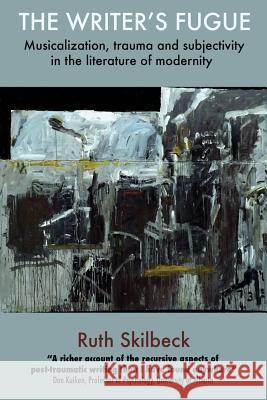The Writer's Fugue : Musicalization, Trauma and Subjectivity in the Literature of Modernity » książka
The Writer's Fugue : Musicalization, Trauma and Subjectivity in the Literature of Modernity
ISBN-13: 9780992277949 / Angielski / Miękka / 2017 / 448 str.
Ruth Skilbeck, Ph.D., chronicles the morphology of fugue in music, psychology and literature, then offers fine-grained analyses of literary fugues by Thomas de Quincey, Marcel Proust, James Joyce, Paul Celan and Sylvia Plath in biographical and cultural contexts. Her fugal analysis shows that each one effects a creative processing of their author's loss and trauma, using a part-intentional part-unconscious waking dream modality that Skilbeck terms the 'fugal modality' of writing. Skilbeck's musico-literary and psychological reading offers a counterpoint to critical readings of modernism as being socially and politically unengaged. Her analysis of contemporary writers in exile, and detention centres, links post traumatic writing to the global era of war, exile, and enforced migrations, and gives new relevance to the earlier romantic and modernist self-based narratives and poems from which we can learn.
Ruth Skilbeck, Ph.D., chronicles the morphology of fugue in music, psychology and literature, then offers fine-grained analyses of literary fugues by Thomas de Quincey, Marcel Proust, James Joyce, Paul Celan and Sylvia Plath in biographical and cultural contexts. Her fugal analysis shows that each one effects a creative processing of their author’s loss and trauma, using a part-intentional part-unconscious waking dream modality that Skilbeck terms the ‘fugal modality’ of writing. Skilbeck's musico-literary and psychological reading offers a counterpoint to critical readings of modernism as being socially and politically unengaged. Her analysis of contemporary writers in exile, and detention centres, links post traumatic writing to the global era of war, exile, and enforced migrations, and gives new relevance to the earlier romantic and modernist self-based narratives and poems from which we can learn.











